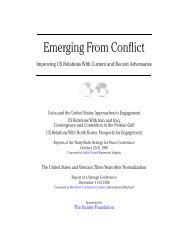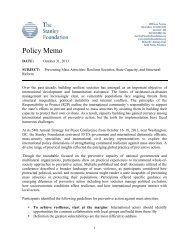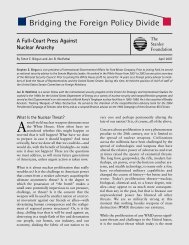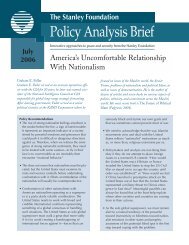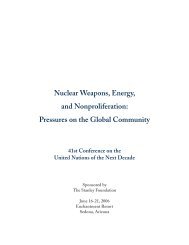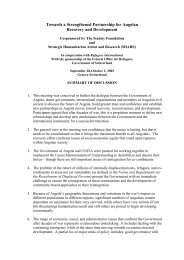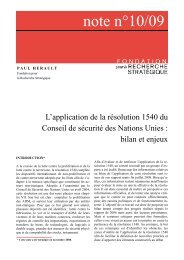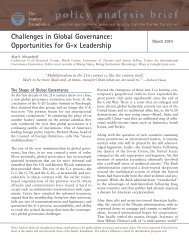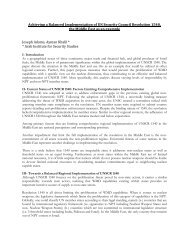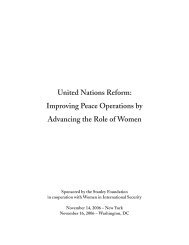444 By Susan Ariel Aaronson and David Deese With a reaction by ...
444 By Susan Ariel Aaronson and David Deese With a reaction by ...
444 By Susan Ariel Aaronson and David Deese With a reaction by ...
- No tags were found...
Create successful ePaper yourself
Turn your PDF publications into a flip-book with our unique Google optimized e-Paper software.
Principles were during the days of apartheid South Africa, which can be used to advancehuman rights? Any such principles certainly would be beyond the scope <strong>and</strong> competenceof an individual oil company, no matter how large <strong>and</strong> powerful. Can a mechanism becreated to publicly expose bad oil company behavior <strong>and</strong> there<strong>by</strong> prompt threats againstcorporate reputation <strong>and</strong> br<strong>and</strong> value? This approach could help harness competitiveforces to discipline oil company performance on human rights concerns. The possibilitiesare ripe for further investigation.Oil Companies <strong>and</strong> the Resource CurseIt is certainly true that the resource curse frequently enables bad governmentbehavior <strong>and</strong> inhibits the development of a more balanced economy, civil society <strong>and</strong>representative government. It is less clear what individual oil companies are supposed todo about it, or whether the responsibility instead really lies with nation states <strong>and</strong> theinternational system. The U.S., Canada, Britain, <strong>and</strong> Norway are cited in the essay asexception to the rule (Australia also belongs on this list). Yet IOCs were also the majordevelopers of these countries’ oil <strong>and</strong> gas resources, so it is clearly not their presence <strong>by</strong>itself which is the cause of the resource curse. Rather it is choices made <strong>by</strong> hostgovernments <strong>and</strong> societies to which foreign oil companies are accountable, not the otherway around. Governments are sovereign <strong>and</strong> companies are not, <strong>and</strong> this is the way itshould be.This raises a more profound question of whether there is a global commons <strong>and</strong>who is responsible for its wellbeing. It may be more important for governments to besignatories to the Extractive Industries Transparency Initiative than for companies to be.If host governments do not adhere to these principles, perhaps there should be some473



